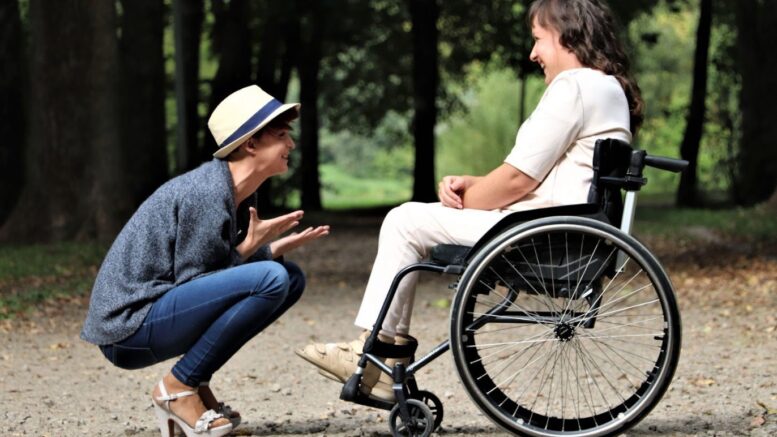According to statistics, about 41.8 million people in the United States provide unpaid care to adults over 50.
Caregiving is often described as an act of love and compassion, a selfless endeavor to support those who need it most. We’ve all heard heartwarming stories of caregivers who go above and beyond to provide care to their loved ones.
And while there’s no denying the inherent beauty in caregiving, there’s also an invisible layer of challenges and emotional turmoil that often goes unnoticed. It’s important to shed light on the fact that caregiving is harder than it seems.
It can be rewarding to assume the role of responsibility and provider. However, it’s still important to recognize and prioritize a caregiver’s mental and physical well-being to maintain a nurturing and healthy environment.
The Emotional Rollercoaster
Caregivers often embark on this journey with abundant love and good intentions. However, they quickly find themselves on an emotional rollercoaster.
They witness their loved one’s pain and suffering—often feeling powerless to alleviate it. Additionally, they face a constant fear of the unknown and the grief that comes with watching their loved one’s health deteriorate. For example, caring for a parent can be incredibly difficult to experience. This is someone who used to take care of you—someone who you might’ve viewed as a superhero. Now, they’re aging or sick; this can be a tough pill to swallow.
The emotional toll of caregiving is immense, and it can lead to feelings of anxiety, depression, and burnout.
The Weight of Responsibility
Caregivers take on significant responsibility, often becoming the primary decision-makers for their loved one’s care.
This responsibility can be overwhelming, as they must navigate complex healthcare systems, advocate for their loved one’s needs, make appointments, and make difficult choices about treatment and quality of life. The burden of responsibility can weigh heavily on caregivers, leaving them feeling isolated and stressed.
Many caregivers have to learn how to administer medications—whether orally or through a shot—and perform treatments. An example would be home hemodialysis. A caretaker, with usually no medical experience and has never worked in a health clinic, is suddenly learning how to give medicine and poke and prod someone with a needle, essentially becoming a nurse.

Physical and Mental Exhaustion
The physical demands of caregiving are also challenging.
Caregivers are often required to assist with activities of daily living—lifting someone out of bed or in and out of a car. This can be physically demanding, and the exhaustion from the constant care can take a toll on their health. Usually, caretakers don’t have time to visit their own doctor or health clinic or worry about their well-being.
Moreover, sleep deprivation is a common issue many caregivers face, as they frequently find themselves awake at odd hours to attend to their loved ones’ needs.
Social Isolation
Caregiving can be an isolating experience. The hours spent caring for a loved one may leave little time for socializing, leading to feelings of loneliness.
Additionally, caregivers may find it difficult to relate to friends who don’t understand the complexities of their role. They might also just not want to talk so much about their role—it’s enough that they live it daily.
Caretakers feel very alone, and this isolation can further exacerbate the emotional strain they experience.
Financial Strain
Providing care often comes with a financial cost. Medical bills, home modifications, and caregiving supplies can quickly add up. Many caregivers struggle to make ends meet, and the financial burden can lead to additional stress and worry.
And usually, when people move into these primary caretaker roles, they leave their own jobs or careers. Most people don’t get paid to offer caregiving services—they do it for free. So, you can imagine the financial strains of living this way.
Neglecting Self-Care
In the midst of caring for their loved ones, caregivers often put their own needs on the back burner.
They may neglect their own health and well-being, both physically and mentally. This self-neglect can have serious consequences, as it ultimately impacts their ability to provide effective care and maintain their quality of life. Depression and feeling burnt out are very common among caregivers. They work so hard to ensure that someone else is okay, leaving little time for themselves.
Also, many caregivers put their lives on hold. They quit their jobs, careers, passions, and school to be a caretaker. Of course, this is something that comes out of love, but it isn’t easy—seeing others live their dreams while you’re stuck at home only worsens the feelings of self-neglect.
The Importance of Recognizing the Struggles
Caregivers are heroes, often unsung and invisible in their struggles. We must recognize and acknowledge the challenges they face.
By doing so, we can better support them, not only by providing practical assistance but also by offering emotional support and validation for their feelings. Caregivers should never feel alone on this journey.
